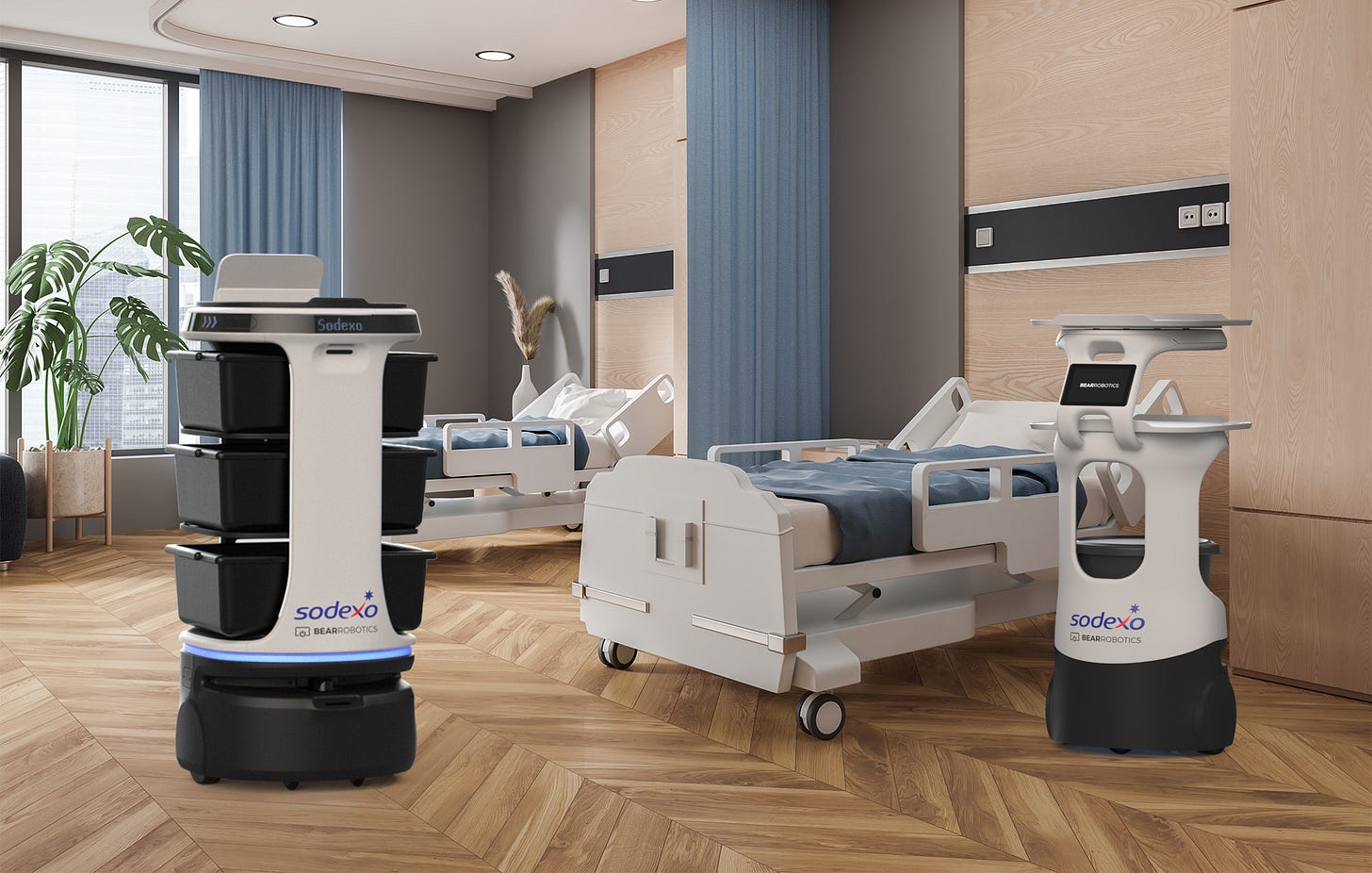Remy Launches Better Days Robo-Restaurant
Amazon Fresh expands, Steve Ells talks Kernel, Bear gets into medicine
Before we get to this week’s big news, we’d like to invite the community to come out tomorrow for an industry happy hour. Meet your peers from the delivery, mobility and restaurant tech fields from 6 to 8 PM in LA’s Arts District. RSVP for free.
Remy Launches Better Days Robo-Restaurant
Remy Robotics just debuted its new brand — Better Days — offering robot prepared meals, oriented towards delivery. While CEO Yegor Traiman cut the ribbon on a Queens, NYC location late last week, the company also revealed it had secretly been operating for two years: preparing meals at CloudKitchens locations in Barcelona, Madrid, Paris and New York. The company has prepped over 100k meals, earning 4.7 out of 5 stars in the process, and offering items like $3.95 stewed lentils and $11.95 teriyaki salmon meals. The health and cost conscious brand is not only available on all three of the major delivery platforms, they’ve got a first party app as well.
The new brand has compared its ambitions to that of McDonald’s, which are some big shoes to fill. While Remy may be affordable compared to other health food brands, the jury is still out on if Americans want miso corn as much as they desire a Big Mac. The company has launched previous brands — like flexitarian-focused OMG — that have yet to gain mass traction. With other robotic food prep companies like Picnic, Vebu and Karakuri either quietly shedding staff or outright shutting down, Remy has a long path to proving its viability.



Amazon Revives Grocery Ambitions
Late last year, Amazon’s grocery head Tony Hoggett, formerly an exec at Tesco, halted the shopping giant’s supermarket expansion spree, giving the the company time to tweak a formula that clearly wasn’t resonating with consumers. Amazon quietly revamped five Fresh stores — two in Chicagoland and three in SoCal — to tone down the creepy panopticon vibe and instead play up traditional grocery staples like Krispy Kreme donuts, increased private label brands and human checkout clerks. With that new playbook, the company is planning to resume new store openings in 2024.
For those that want the store to come to them, the company is rolling out grocery deliveries to non-Prime members. Deliveries will run $4.95 to $13.95 per order, compared to $6.95 to $9.95 for subscribers, with free deliveries on baskets over $100. Expect Whole Foods delivery to be available to non-Prime member shortly as well. The company’s also quietly going after Instacart and Shipt, as it teams up to offer grocery delivery from Bristol Farms, Cardenas Markets, Pet Food Express, Weis Markets, and Save Mart.
Do Consumers Love or Hate Autonomous Grocery Stores?
Amazon isn’t the only company making moves in the grocery sector. Green Picks Market opened its first autonomous grocery store, in the metro Atlanta region. Shoppers enter the store via QR code, and shop a selection of health foods as cameras monitor overhead. Sounds a lot like Nourish + Bloom, also located in the ATL region. Meanwhile, New England grocery chain Booths is chucking its self-checkout machines in the rubbish bin, showing that maybe shoppers prefer the human touch. And in further proof that retailing ain’t easy — Amazon is pulling the plug on its Styles clothing stores, which ended up employing too many behind-the-scenes workers as shoppers struggled with the in-store tech.
Chipotle’s Steve Ells Road to Kernel
If you don’t know Steve Ells’ name, you know his work — after a stint at SF fine dining legend Stars, he brought Mission Style burritos to Denver, and then the world, back in 1993. Pushed out after a food safety dilemma in 2020, he’s quietly returned to the restaurant world as he builds out robo-restaurant Kernel. Raising $36M on top of ten mil of his own, Ells hopes a meat-light menu will push the world in a more sustainable direction. The company is also fully embracing robotics, hoping that by slimming on-site staff to three per unit, it can offer healthy food at a more McDonald’s-like price point.
Meet Doctor Bear
Tray robot startup Bear is teaming up with food service stalwart Sodexo to break into the healthcare space, with pilots commencing in 2024. Under the partnership, Bear Robotics’ self-driving tray carriers will support patients and support staff across the U.S. No word yet on if they’ll be transporting that famous Jello-like hospital food…
Investors Still Hot on Food Innovations
While the VC scene may not be as frothy as a few years ago, certain categories can still rack up the big bucks. Newly compiled data shows continued interest in health-oriented convenience, non-alcoholic beverages, fermented foods, alt proteins and caffeine. Big raisers this year include organic baby food subscription Bobbie ($70M,) booze free booze brand Lucky Saint ($12M,) protein-enrichment startup Air Protein ($75M,) and next-gen coffee slanger Blank Street ($20M.)
In Other News
Starbucks announces 3% employee pay bump. Indoor farmtech startup Bowery raises $85M, cuts staff. Jonah Bliss shares what to expect from the future of foodtech and delivery at this March’s Curbivore conference. Fast food chains build ever more expansive drive-thru operations. Canoo delivers Oklahoma-built space age vans. May Mobility raises $105M. Meet Toyota’s futuristic, ultra-customizable Kayoibako vehicle platform. Shake Shack says self-serve kiosks boost profits. When will Sweet Green hit profitability? Clover Food Lab files for reorganization. Wonder raises $100M from Nestlé. Cartken unveils Model E — geared towards carrying up to 80 kg in warehouses. Cafe X installs robotic barista in Tesla’s Giga Berlin factory. Meet Fin — London’s pedal powered sustainable delivery startup.




